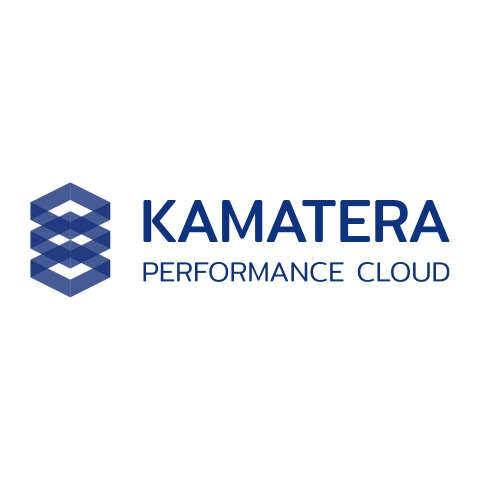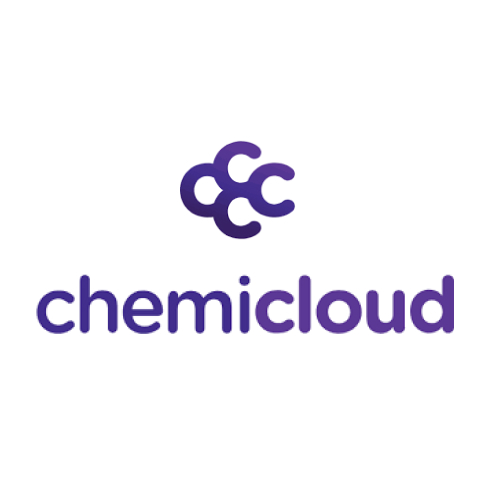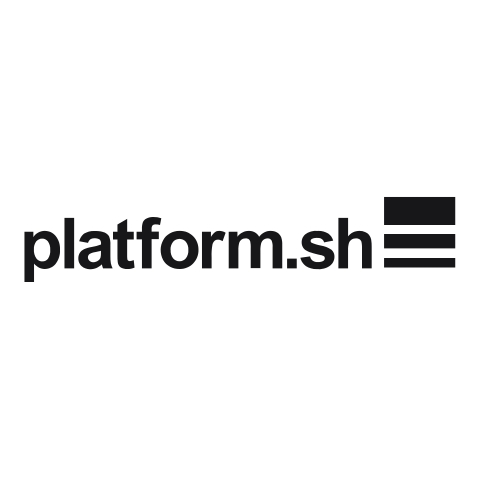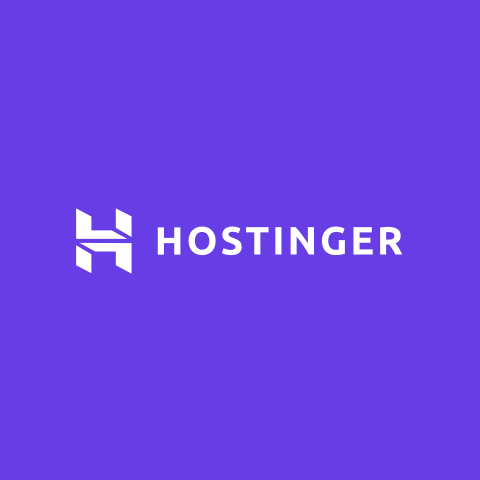Hosting a Node.js application requires careful consideration as it directly impacts the performance, reliability, and access to developer-friendly tools. These tools allocate, manage, and monitor the Node.js app.
Node.js applications require low latencies and higher throughputs to function properly. To ensure this, you need servers that offer powerful CPUs, SSD storage, and multiple global server locations.
Although hosting platforms provide the scalability and performance required for Node.js hosting, the real challenge is finding a suitable platform without the need to overspend.
That’s why I analyzed and reviewed 20 popular platforms, and shortlisted the 13 best Node.js hosting providers. Out of these, 9 are beginner-friendly, while the rest 4 are enterprise-ready.
- 1. hosting.com – High-performance Turbo Servers
- 2. Kamatera – Intel Xeon, NVMe, PCI-complaint Hosting
- 3. ChemiCloud – Best for Free Daily Backups
- 4. DigitalOean – Developer-friendly Hosting Solution
- 5. FastComet – Powered by AMD EPYC
- 6. Hostinger – Offers 300 Mb/s Network Speed
- 7. HostPresto – 60-day Free Trial
- 8. MilesWeb – Offer Free Website Migration Service
- 9. Heroku – Best for Rapid Deployment of Modular Applications
- 10. Google Cloud – Best for Integration with GCP
- 11. Microsoft Azure – Best for Enterprise Cloud Services
- 12. AWS EC2 – Global Data Centers
- 13. Platform.sh – Unified Delivery for Multiple Frameworks
- Show less
You can trust Geekflare
At Geekflare, trust and transparency are paramount. Our team of experts, with over 185 years of combined experience in business and technology, tests and reviews software, ensuring our ratings and awards are unbiased and reliable. Learn how we test.
Beginner-friendly Node.js Hosting Platforms
Let’s begin by taking a look at beginner-friendly Node.js hosting platforms. These platforms provide excellent performance with a managed setup. So, if you’re new to Node.js hosting, you can focus solely on your development workflow.

1. hosting.com
High-performance Turbo Servers
- Customer Support24/7 via phone, live chat, ticket
- Control PanelcPanel
Why I Chose hosting.com
hosting.com offers high-performance turbo servers (claiming up to 20x). It is reliable and provides 99.99% uptime with easy scalability options.
I recommend hosting.com because of its affordability and top-notch 24/7 customer support. Its infrastructure makes Node.js apps work flawlessly, making it ideal for developers, startups, and businesses.
Additionally, I found its Node.js setup practical. It uses the Node.js Selector, which makes it easy to set up Node.js apps via a command line or control panel.
Developers can take full advantage of developer-friendly tools. These include SSH access, version control, and Git integration.
However, I didn’t like that the platform’s cPanel listed version limits the Node.js version support (v6 to v20). It also doesn’t support Node.js upgrades. However, the hosting.com VPS plan has no such limitations.
As for data centers, hosting.com offers 4 locations, including:
– Michigan, USA
– Arizona, USA
– Singapore, Asia
– Amsterdam, Europe
These servers use redundant networks and power supplies for uninterrupted operations.
Pricing
hosting.com offers 3 Node.js plans starting from $4.99/month. Each plan comes with a 30-day money-back guarantee. Renewal rates are higher than introductory pricing. They also offer VPS plans that support Node.js.
hosting.com Features
Free account migration
Unlimited websites and SSD storage
Access to developer-friendly tools
Easily scalable solution with upgrade options
Easy node.js setup with a graphical interface
hosting.com Pros/Cons
Free account migration
30-day money-back guarantee
99.99% uptime guarantee
Limited Node.js version support on shared plans

2. Kamatera
Intel Xeon, NVMe, PCI-complaint Hosting
- Customer Support24/7 via phone, email
- Control PanelcPanel, VestaCP, and Plesk
Why I Chose Kamatera
Kamatera is a semi-premium Node.js hosting provider focused on speed. To provide excellent load times, it uses an Intel Xeon, 10 Gbit/sec port, and NVMe SSD. They are PCI-compliant, which makes them ideal for eCommerce projects.
I recommend Kamatera for fast-growing Node.js projects as it offers flexible pricing and unlimited scalability. Additionally, businesses can choose between different server types, be it General Purpose or Dedicated. After all, they are an Infrastructure as a Service (IaaS) provider.
However, it varies as the performance of your server depends on the server type chosen:
– Availability (Type A) – assigned non-dedicated server CPU threat with no resource guarantee.
– General purpose (Type B) – assigned to a dedicated CPU with reserved resources
As for the app version, it supports pre-installed v17 and v22 out of the box. You can choose to change the version after installation.
Pricing
Kamatera’s Basic plan starts at $4/month, and you get 1 GB RAM, 20 GB SSD, 1 vCPU, and 5000 GB of internet traffic.
Users can add more storage, choose managed service, or extend daily backups for added cost. They offer a 30-day free trial (for plans that cost less than $100).
Kamatera Features
24 data centers across the globe
Complete root access
Simple management console
Handles surges in traffic with load balancers
Access to 100+ apps such as Docker, MySQL, etc.
Kamatera Pros/Cons
Unlimited scaling
No downtime with 99.95% uptime guarantee
Value for money pricing
No free SSL and backups
The knowledge base lacks depth

3. ChemiCloud
Best for Free Daily Backups
- Customer Support24/7 live chat
- Control PanelcPanel
Why I Chose ChemiCloud
ChemiCloud is an affordable Node.js hosting service that offers a one-click setup, free daily backups, and a free domain.
I strongly suggest it to small- to medium-scale businesses that want a reliable hosting environment without spending a lot of money.
Additionally, businesses can take advantage of its 19+ globally located data centers (powered by AMD EPYC 7000 CPUs), including Singapore, Paris, London, and Dallas.
With tactical location choice, free Cloudflare CDN, and premium tier network, you can expect your Node.js apps to offer low latency to users.
However, for scalability, ChemiCloud requires you to upgrade but is limited per hosting plan.
Another big con is that it is limited to cPanel-listed Node.js versions, just like hosting.com. You can only install Node.js versions by cPanel, including 8.17.0, 11.5, 9.11, 12.22, 14.20, 11.50, and 16.71.
As for support, ChemiCloud offers 24/7 customer support with excellent response time. They offer ticket options for tackling bigger issues.
Pricing
ChemiCloud offers 3 plans, with a starter plan at $4.49/month (yearly plan). They provide add-ons to improve performance and functionality (such as one-click backup restore).
All plans come with a 45-day money-back guarantee.
ChemiCloud Features
Powered by Litespeed Cache
Global data center presence with 19+ locations
Uses CloudLinux OS for improved server stability and security
Offers free SSL, free domain, and free Cloudflare CDN
Comes with email support
ChemiCloud Pros/Cons
Free website migration (no downtime)
45-day money-back guarantee
Responsive customer support
Limited Node.js version support as it relies on cPanel
Slightly expensive (for monthly and yearly plans)

4. DigitalOean
Developer-friendly Hosting Solution
- Customer Support24/7 via tickets
- Control PanelCustom
Why I Chose DigitalOcean
DigitalOcean is a Node.js hosting solution with affordable pricing and excellent scalability. They provide self-managed and fully managed platforms as a service option.
I like the flexibility that DigitalOcean offers. You can choose to host your Node.js app via different options, including:
– Easy-to-use Virtual Machines: highly scalable and user-friendly droplets.
– App Platform: Build and deploy Node.js applications from code to production via a fully managed platform as a service.
Furthermore, DigitalOcean provides a marketplace that gives access to useful 1-click Node.js droplets, including:
– OpenLiteSpeed NodeJS: One-click app that installs the Node.js server
– NodeJS: Lightweight, fully managed database with one-click Node.js installation
– CloudPanel 2: Next-generation server control panel that supports Node.js
Overall, DigitalOcean is developer-focused, focusing on scalability and performance, and offering value for money.
Pricing
DigitalOcean’s Basic droplet pricing starts at $4/month, where you get 1 vCPU, 512 MiB, 500 GiB transfer, and 10 GB SSD.
New users get a $200 credit (must be used within 60 days).
DigitalOcean Features
Simple UI that offers ease of use
Useful CLI (command-line interface ) and API (application programming interface)
Supportive community consisting of experienced developers
Excellent documentation on installing, troubleshooting, and managing Node.js app/services
Offers load balancers for better scalability and performance
DigitalOcean Pros/Cons
Low-cost Node.js hosting
99.99% SLA for droplets and volumes block storage
Excellent customization options
Steep learning curve
No free domain or SSL

5. FastComet
Powered by AMD EPYC
- Customer Support24/7 via live chat
- Control PanelcPanel
Why I Chose FastComet
If you’re looking for affordable and managed Node.js hosting, then FastComet is the right pick. It can help small businesses keep initial costs low, powered by servers using AMD EPYC servers, NVMe SSDs, LiteSpeed web servers, and WordPress LiteSpeed Cache (LSCWP).
I like FastComet’s complete overall package, which includes
– Proper security measures with Imunify360
– 24/7 custom support (with an average 15-min response time)
– Robust service monitoring with 99.99% SLA
Additionally, it offers 13+ data centers across the globe, including Dallas, London, Frankfurt, Singapore, and Sydney.
Pricing
FastComet offers 4 plans starting at just $1.79/month. It lets you host a single Node.js-powered site with 10 GB NVMe storage.
All plans come with a 45-day money-back guarantee.
FastComet Features
In-depth knowledge base with 3000+ tutorials, guides, and videos.
Offers 200 access points via Cloudflare CDN
All plans come pre-installed with Node Package Manager (NPM)
Complete protection with WAF and IP Reputation Guard
Free daily backups with 30-day off-site backups
FastComet Pros/Cons
Excellent customer support
Free migration and daily backups
Affordable pricing
High renewal rates
Restricted cPanel Node.js version support

6. Hostinger
Offers 300 Mb/s Network Speed
- Customer Support24/7 via live chat, email
- Control PanelCustom hPanel
Why I Chose Hostinger
Hostinger wins my recommendation for VPS Node.js hosting. It’s affordable and offers high performance powered by its 300 MB/s network speed to ensure low latency.
However, it lacks some basic features that make a “great” Node.js hosting “exceptional”. For example, it doesn’t offer free migrations or any backups. These require purchasing add-ons. For migration, you need to contact a third-party service—which is not efficient or budget-friendly.
Apart from this, it offers a one-click template installer for a seamless Node.js project environment setup. I found its AI assistant helpful when dealing with hosting or project-related problems.
Hostinger VPS hosting offers 5 global servers, including France, India, USA, Brazil, and Lithuania.
Pricing
Hostinger offers 4 VPS Node.js hosting plans with prices starting at $4.99/month (2-year term). It provides 1 vCPU, 50 GB NVMe space, 4 GB RAM, and 4 TB bandwidth.
There’s also a 30-day money-back guarantee.
Note: Hostinger web/cloud plans don’t support Node.js apps.
Hostinger Features
Custom easy-to-use control panel to manage multiple VPS projects
Full root access and the ability to install any Node.js version
Offers dedicated IP with each VPS plan
Automated weekly backups with easy revert option (within minutes)
One-click VPS templates for different technologies, including Node.js
Hostinger Pros/Cons
Pre-made Node.js templates
DDoS and Firewall protection
Highly scalable and customizable
No free backups and migrations
Requires technical knowledge to manage

7. HostPresto
60-day Free Trial
- Customer Support24/7
- Control PanelcPanel
Why I Chose HostPresto
HostPresto offers a lucrative 60-day free trial, offering worry-free means to try out its service.
I recommend HostPresto to local UK businesses as it offers UK-based servers. They provide state-of-the-art enterprise infrastructure capable of handling high-demand Node.js applications. These servers are highly scalable and offer daily backups.
Its private servers are fully managed as they take care of setup, app deployment, updates, and even fixes. Furthermore, they support all Node.js versions.
However, I found their customer support lackluster, with slow response time and showcasing low intent to answer. In my interaction, I had to ask multiple times to get answers to basic questions.
Pricing
HostPresto offers 3 plans, starting at £5/month. Their basic Node 1 plan provides 5 GB SSD storage, 1 CPU, and 1 GB RAM.
HostPresto Features
Excellent DDoS protection and free Cloudflare CDN
Fully scalable via pro-rate upgrade cost
Utilizes 100% renewable energy for powering servers
Offers daily backups (4 months) with one-click restore
Supports development tools such as Git, NPM, SSH, and SFTP
HostPresto Pros/Cons
Independent hosting provider
Supports all Node.js versions
SLA-backed 99.9% uptime guarantee
Slow customer support
Limited global reach

8. MilesWeb
Offer Free Website Migration Service
- Customer Support24/7 via live chat, email
- Control PanelcPanel
Why I Chose MilesWeb
MilesWeb is known for its developer-friendly Node.js hosting. They offer cPanel Node.js support, which is limiting, but makes up with free backups, terminal access, and SSL.
Developers can instantly spin up Node.js-optimized environments via an easy-to-use interface. This optimized environment offers a plug-and-play option, reducing time to market.
I found that MilesWeb offers terminal commands that give complete control to Node.js developers. It helps monitor, troubleshoot, and execute commands easily.
This makes MilesWeb a great host for small- to medium-scale Node.js projects. It offers a complete package with excellent plug-and-play capabilities.
Pricing
MilesWeb has 3 plans with pricing starting at $7.49/month. It offers free domains, free SSL, 250 GB NVMe storage, and email accounts.
MilesWeb Features
Node.js optimized environment with robust performance
Easily manage projects with user-friendly cPanel
Free migration carried out by a dedicated team
Secure email accounts with POP3/IMAP
Supports Softaculous one-click installer with 400+ app support
MilesWeb Pros/Cons
Value for money plans
Free domain for 1st year
Instant Node.js setup
Limited data center locations
Unnecessary popups to upsell

9. Heroku
Best for Rapid Deployment of Modular Applications
- Customer SupportPaid
- Control PanelCustom
Why I Chose Heroku
Heroku from Salesforce is an ideal pick for rapid deployment. It lets you push your Node.js source code into Dyno for execution. Dyno is a smart container that offers a secure Node.js stack.
Apart from intuitive deployment, Heroku provides a simple dashboard for easy management. Here, you can see and manage Node.js applications’ resource utilization, including CPU and memory usage.
I suggest Heroku for an advanced Node.js project that requires fast deployment, high configurability, and scalability.
Pricing
Heroku Dyno’s price starts at $5/month (or $0.005/hour). However, the actual cost depends on the app itself.
Heroku Features
Offers GitHub integration for seamless deployment
Provides access to other powerful add-ons such as Postgres, MongoDB
Easily roll back to working copy if something breaks
Handles routes and HTTP traffic distribution itself
Offers horizontal scalability
Heroku Pros/Cons
Manages configuration automatically
Seamless GitHub integration
Excellent monitoring capabilities
Technically complex
Support is lacking
Enterprise-ready Node.js Hosting Platforms
In this section, I’ll go through the enterprise-ready platforms for Node.js projects. These hosts are equipped with excellent infrastructure, features, and scalability to match enterprise projects.

10. Google Cloud
Best for Integration with GCP
- Customer SupportPaid
- Control PanelCustom
Why I Chose Google Cloud
Google Cloud is an enterprise-ready platform that offers the proper set of Node.js tools for successful cloud-native app building. Businesses already dealing with the Google Cloud platform ecosystem can opt for it.
With GCP Node.js, you get benefits such as:
– In-IDE assistance
– Native runtime support on GKE, Cloud Functions, and Cloud Run
– Access to optimized Node.js libraries
Additionally, you can benefit from GCP’s robust infrastructure presence across the globe. Currently, it offers 41 regions, 124 zones, and 187 network edge locations.
Google Cloud has extensive documentation and deep IDE integration with Cloud Code. You can also use it with other IDEs, such as Visual Studio Code and IntelliJ, via extensions.
Furthermore, developers can utilize GCP ecosystems like Cloud Trace, Cloud Logging, Cloud Monitoring, and Error Reporting.
Pricing
Node.js on Google Cloud follows the pay-as-you-go pricing model. To get the exact cost, you need to get a quote or use its pricing calculator to get an estimate.
Google Cloud also offers $300 in free credit for new users (need to spend in next 90 days).
Google Cloud Features
Offers high-quality optimized libraries for low-level server communication
Integrates well with the GCP ecosystem, offering easy management
Ability to choose from Kubernetes, custom hardware, and VMs
Provides artifact registry that integrates with CI/CD and GC runtimes
Excellent documentation for worry-free Node.js development
Google Cloud Pros/Cons
Excellent scalability
Fast I/O processes
Integrates well with GCP
Complex to setup
Can be costly

11. Microsoft Azure
Best for Enterprise Cloud Services
- Customer SupportPaid
- Control PanelCustom
Why I Chose Microsoft Azure
Microsoft Azure offers one of the best dedicated hosting options for enterprises that need Node.js cloud services.
I recommend Microsoft Azure to Node.js developers as it lets you take full advantage of the platform, including:
– Powerful tooling consisting of Visual Studio Code, CLIs, SDKs, and more
– The ability to host the Node.js app is as per your requirement
Furthermore, developers can opt to host their full-stack Node.js app using:
– Kubernetes or Docker containers
– Using Serverless Azure Functions
Azure also lets developers quickly add or remove services such as performance monitoring, PostgreSQL, and more.
Pricing
For pricing, you need to contact their sales team. They provide a pricing calculator to get a rough estimate.
Azure offers $200 worth of credit for free accounts.
Microsoft Azure Features
Deploy code from anywhere using CLI, Portal, and Editor
Seamless scalability horizontally
Ability to host static sites with Azure storage
Fully managed service so developers can focus on development
Ability to integrate AI and ML capabilities
Microsoft Azure Pros/Cons
High availability
Excellent security and scalability
Cost-effective for large enterprise projects
Requires platform expertise
Complex pricing structure

12. AWS EC2
Global Data Centers
- Customer Support24/7 paid
- Control PanelCustom
Why I Chose AWS EC2
Amazon Web Services (AWS) is an excellent Node.js enterprise hosting platform. It has a strong fleet of global data centers with 114 availability zones and 36 geographical regions. They constantly work towards adding new zones, making them the best choice for businesses looking for ever-expanding global reach.
AWS EC2 offers an easy way to host Node.js applications. It gives root access with the option to choose between performance or cost optimization.
Additionally, AWS provides different ways to host Node.js applications, including:
– AWS Elastic Beanstalk: with auto-scaling and managed service.
– AWS Lambda (Serverless): requires no server management and is cost-effective.
I found AWS to offer excellent flexibility in choosing and implementing Node.js applications. Additionally, it is enterprise-ready, which gives access to excellent AWS ecosystem services.
Pricing
Amazon EC2 follows a pay-as-you-go model.
AWS EC2 Features
99.99% SLA commitment
Reliable and on-demand scalable infrastructure
Baked-in application security with AWS Nitro System
Useful AWS migration tools that work with AWS Managed Services/Lightsail, etc.
Ability to optimize cost and performance with AWS Savings Plans
AWS EC2 Pros/Cons
Highly scalable
Developer-friendly ecosystem
Secure and cost-effective
Price variations based on location
Complexity

13. Platform.sh
Unified Delivery for Multiple Frameworks
- Customer Support24/7
- Control PanelCustom via CLI
Why I Chose Platform.sh
Platform.sh brings an adaptable and affordable hosting solution for Node.js by offering a unified delivery system for multiple frameworks, including Node.js.
I recommend Platform.sh due to its simple approach to Node.js hosting. It provides a simple workflow where you use YAML to define and deploy applications. It removes the need to deploy and manage PostgreSQL or Redis.
Furthermore, Platform.sh offers all the services needed for successful deployment, including:
– RabbitMQ
– Built-in Redis
– PostgreSQL support
– Managed CDN support
And more.
You can also choose from a cloud hosting provider, including AWS, Azure, and Google Cloud.
Pricing
Platforms.sh offers 3 plans: Professional, Enterprise, and Elite. For the actual price, you need to contact their sales.
However, the Professional plan does come with a free 30-day trial with no credit card requirement.
Platform.sh Features
Faster Node.js development with GitOps and Git
Ability to try out different packages (Strapi, Drupal, etc.) in isolation
Manage projects directly from the built-in CLI terminal
Customizable package management using yarn, npm, etc.
Offers Observability Suite for app performance optimization
Platform.sh Pros/Cons
Streamlined ecosystem
Cloud providers choice
Excellent documentation
Pricing model can be confusing
Learning curve for new users
Best Node.js Hosting Comparison Table
In the table below, I’ve compared the Node.js hosting providers in this list. I’ve highlighted their differences in hosting type, backup options, data centers, website migration, Node.js version support, scalability, and starting price.
 |  |  |  |  |  |  |  |  |  |  |  |  | |
Shared | VPS | Shared/VPS | Cloud | Cloud VPS Packages | VPS | Cloud | Shared | Cloud | Cloud | Cloud | Cloud | Cloud | |
4 | 24 | 19 | 12 | 13 | 5 | 1 | 6 | 10 | 41 | 300+ | 114 | Choice between AWS, Azure, GC | |
Supports from 6.17 to latest 20.17 | Supports all versions, comes with built-in v17 and 22 | cPanel limited Node.js support | Custom | cPanel limited Node.js support | Supports all version with root control | Supports all Node.js versions | Supports v 6.17 to 22.9 | Supports all Node.js versions | Supports all Node.js versions | Supports all Node.js versions | Supports all Node.js versions | Supports all Node.js versions | |
Moderate via plan upgrade | High via plan upgrade | Moderate via plan upgrade | Very High with resource upgradability | Moderate via plan upgrade | Highly scalable | Highly scalable | Moderately scalabe | Highly scalable | Highly scalable | Highly scalable | Highly scalable | Highly scalable | |
$5.99 | $4 | $4.49 | $4 | $1.79 | $4.99 | £5 | $7.49 | $5 | Custom | Custom | Custom | Custom | |
Geekflare’s editorial team determines ratings based on factors such as key features, ease of use, pricing, and customer support to help you choose the right business software. | |||||||||||||
4 Benefits of Using Managed Node.js Hosting
During my research, I came across 4 primary benefits of managed Node.js hosting, and I’ve discussed them below.
- Low/No Maintenance: Developers don’t have to deal with maintenance as the Node.js cloud hosting solution takes care of setup, installation, upgrades and troubleshooting.
- Cost-effective: Managed Node.js offers cost-effective server hosting focusing on performance and reliability.
- Scalability: Managed hosting offers excellent scalability with the ability to add resources/servers horizontally or vertically. It offers load balancing to ensure optimal server performance during demand. Furthermore, businesses can utilize clustering to multiple Node.js app instances for better load times and resource utilization.
- Security: Managed Node.js hosting solutions excel at providing tight security. They offer robust firewall and malware protection. Furthermore, they ensure proper user input sanitization for Node.js libraries. They also monitor every aspect proactively to ensure a smooth hosting experience.

